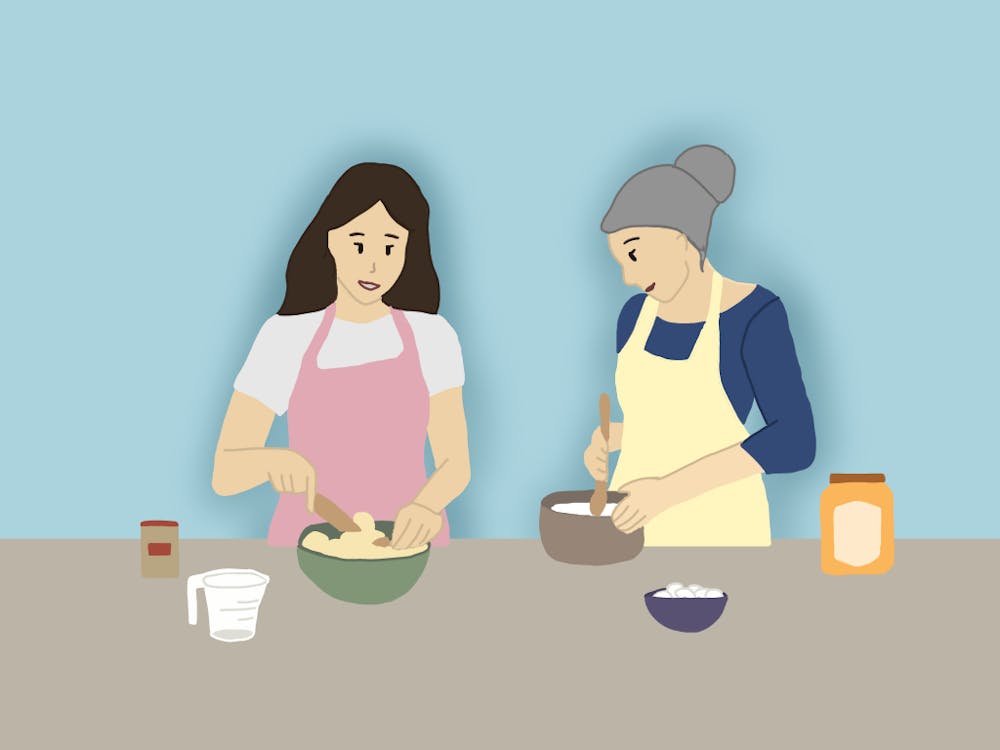1. How can you help your partner when they are struggling with their mental health?
Witnessing a loved one struggle is an emotionally taxing, troubling and sometimes even all-consuming experience.
First, let’s establish this — you are not their therapist. You can be mindful to provide as much support, kindness and care as possible. You can encourage vulnerability and create a space where they feel comfortable sharing. You can emphasize that you are here for them, regardless of whether they want to open up to you or not. All of these assurances are useful, but it is important to remember that you are not a professional. Instead of attempting to be a therapist, guide them to resources where they can get this professional help.
Let’s think about this another way. Before you take off on an airplane, the flight attendants give a safety tutorial during which they remind you that you must secure your oxygen mask before helping secure the masks of others. The same logic applies here — you have to be there for yourself before you can be there for anyone else. You have to make sure that you are breathing, that you have secure support and that you know what energy you have stored for yourself before you offer it elsewhere.
Taking proper care of yourself and your mental health is one of the best ways you can be a better partner — and person. Given your partner’s mental state, they likely do not have the energy right now to show up for you in the way you might need. Just as this partner will need to lean on you, you will need to lean on your friends or family members. Make those people aware that you’ll need them. The more people in your corner, the more support you can offer your partner. You’ll disservice yourself, and them, if you go through this alone.
Given your will to help, it sounds like you are already leading with compassion and are perceptive of your partner’s emotions. The question you’ve asked here is a great first step, and you can pose it to your partner, too. Ask them, “how can I best support you, how can I be here for you during this time?” There may be little you can do, but just asking the question is a start.
2. How am I supposed to make friends? It feels nearly impossible.
This is a universal sentiment, particularly in college, so I want to first acknowledge that you are not alone in this feeling. Whether you’re a first-year or fourth-year, an international exchange student or a Charlottesville local — many members of the University have asked themselves this same question at some point. Everyone talks about the joys and highs of college as the supposed best years of your life. But few talk about the hardships of navigating a new environment and the scariness of being far from home. They often omit one of the most pervasive and paralyzing human experiences — loneliness. The reality of the low moments of college in contrast with the expectations of what’s projected in the media can make wrestling with these emotions even more difficult.
But to your question, there are some proactive steps you can take to combat this feeling. First, think about your interests and what you’d like to get involved in at the University, then pursue groups and spaces that align with that. Go to the activities fair and join a club. Look at the organizations the University has to offer, and join their listserv or email their leaders. These clubs have built-in social events, and they’re a great way you can meet new people and be surrounded by those with like-minded interests.
Set a goal to strike up a conversation with a classmate every day or one in every class. Find that person who you can text about assignments or partner with on projects. Ask them what sort of clubs they’re involved in or what they do on weekends.
Even if everything at the University feels foreign to you, you can go to one coffee shop on the Corner or a restaurant in Newcomb consistently. You’ll find that just by establishing some kind of habit where you can interact with familiar employees, you’ll feel more at ease. Interactions with these types of strangers are psychologically proven to predict, and boost, our happiness.
Put yourself in the way of interaction as much as possible. You have nothing to lose, and even if a place or its people are not for you, you’ll never know if you don’t go. So much of life is determined by our ability to do two words — show up. If you start by doing that, I think you’ll find connecting is more possible than it might seem.







